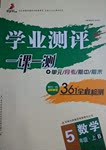题目内容
重音题。请选出重音与其他单词不同的词
1.A. computer B. piano C. suffer D. asleep
2.A. chemical B. bathroom C. tap D. Chinese
练习册系列答案
 学业测评一课一测系列答案
学业测评一课一测系列答案
相关题目
题目内容
重音题。请选出重音与其他单词不同的词
1.A. computer B. piano C. suffer D. asleep
2.A. chemical B. bathroom C. tap D. Chinese
 学业测评一课一测系列答案
学业测评一课一测系列答案